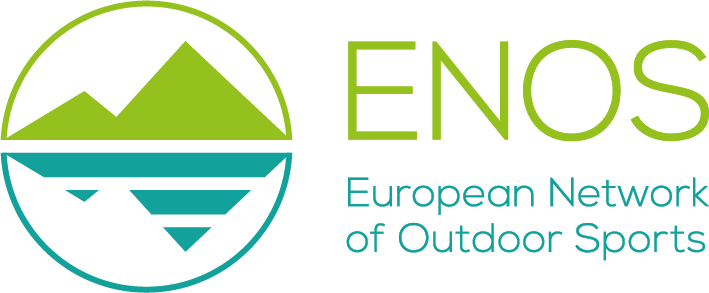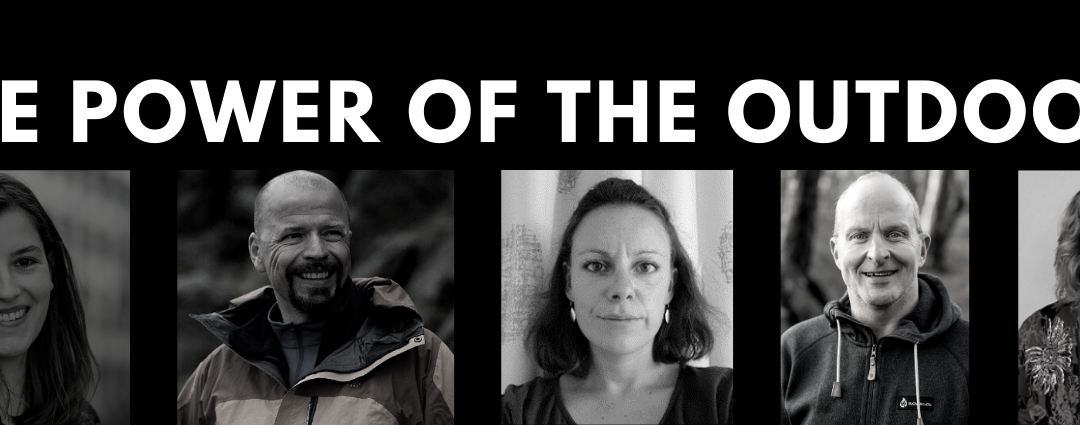On the 22nd October 2020 the European Network of Outdoor Sports ENOS) and the Its Great Out There Coalition (IGOT) organised an online seminar on the power of the outdoors as a follow up event to the European Week of Regions and Cities Green Week. 136 delegates met online to hear key presentations and engage in discussions on how the outdoors can help to deliver on EU priorities for a greener, healthier, more resilient, connected and inclusive Europe.
After an initial welcome from Mike McClure from ENOS and Margo de Lange from IGOT, Yves Le Lostecque, the head of the EU Sport Unit who was representing Commissioner Mariya Gabriel for Innovation, Research, Culture, Education and Youth. Yves highlighted the importance of the role of physical activity in natural settings especially during the Covid -19 pandemic. He explained that there is awareness of the important role and power of sport in helping to increase the resilience of EU citizens though active lifestyles and in boosting society’s capacity to deal with health challenges. Outdoor activities that promote environmental care and sustainable low carbon active lifestyles for citizens are an example of the role sport can play in transitioning to a green economy. The European Commission Green deal is one of the most important topics in the EU agenda and is the long term start strategy for a climate neutral, green, competitive and inclusive economy. In line with this there is a modernised cohesion policy focused on innovation and sustainability. As a result funding will be focused on the first two objectives of Smarter Europe and Greener low carbon Europe.
Yves highlighted the importance of the SHARE Initiative and that outdoor sports have a strong role to play in helping to unlock EU regional development funding for sport. He highlighted that Commissioner Gabriel is very committed to the work programme for sports and on 17th November there will be a high level seminar on future sport policy. He explained that the new Erasmus programme is still in discussion. The budget will be much higher and new activities will be able to be supported. Yves concluded that sport and environment and the evolution to greener sport will a key topic in the EU Work plan for sport going forward.
Margo de Lange followed on by sharing the findings of a piece of research that IGOT had developed in partnership with the European Outdoor Group. The report and set of slides that Margo presented can be accessed on the IGOT website[1]. An online questionnaire was sent out in 7 countries with over 1000 respondents from each. The research showed that more activities were done outdoors than indoors, and unsurprisingly men are more active than women outdoors. Walking, running and cycling are the top activities among Europeans and walking and running are most likely to get those who are not active outdoors.
One of the strongest motivators for participation was mental health – especially among women and the two greatest reasons for not taking part were interest in other things and a lack of convenient access. However other issues included a lack of knowledge, perceived unsuitability, cost and also that they may not be fit enough to take part. It was also highlighted that 31% of respondents indicated that they expect to do more outdoor activities after Covid.
Mike McClure then provided a short summary on the findings of the Benefits of Outdoor Sports for Society project. All materials from the project can be found online.[2] He highlighted that a review of literature and testing in the field showed that a very large range of benefits could attributed to participation in outdoor sports but that these had been categorised as follows: Physical health, Mental Health and well-being, Community, Education, Environmental, Other.
As per the research that Margot showed the importance of physical activity in natural settings for mental well-being was well documented in the literature but also a clear outcome when the research was tested with case studies. However, the very strong sense of community and social cohesion that outdoor sports could develop was of equal or greater importance to most participants. It was also clear that outdoor sports can connect people strongly to the natural environment and improve their sense of responsibility for it. The study looked at how these benefits could be valued and further details of this are available on the BOSS website and in the toolkit that can be downloaded from it.
Michael Beckmann then gave a short presentation on how the town of Winterberg in Germany. He highlighted that Winterberg active tourism in outdoor activities is the most important economic driver for the town. The variety of the local environment including forests, rivers, gorges and mountains are the main things that attract visitors to the town. He highlighted that the demand for the outdoors especially for e-biking following the Covid-19 pandemic has never been higher but that hiking is also hugely important. He explained that it is the natural environment that facilitates local participation, tourism opportunities and also high performance world class events.
The second part of the webinar was in the form of a discussion panel and this was facilitated by Professor Diane Crone from Cardiff Metropolitan University. The panel members were
- Alba Godfrey [BE] / EuroHealthNet research policy officer
- Melissa Desbois [FR] / Outdoor sports development strategist, Marseille
- Andrew Denton [UK] / Chief Executive of the Outdoor Industries Association
- Eki Karlsson [FI] / Chief Executive of Suomen Latu – The Outdoor Association of Finland
There were a variety of questions both pre-prepared and from the chat. These included issues of getting policy makers to understand the value of outdoor activities and ensuring that we show the economic value of investing in these. Furthermore, the importance of language and ensuring that definitions are inclusive of physical activity was highlighted. Ensuring that there is better cross sectoral approaches and networking is also essential and the value of events like this provides the mechanisms to do that.
Getting people to move from one off opportunities to active life habits is also seen as a critical agenda item and there are a range of ways that this can be promoted from events to ensuring that opportunities are generated that can integrate outdoor activities into day to day life but also provide social connections. Engaging young people with nature has been shown that they are more likely to continue with this into adult life and so normalising the outdoors through the school curriculum is an essential element.
Ensuring that there is good information available to people especially at a local level through online maps and information is also an essential element that should be developed in order to facilitate greater levels of participation that is accessible to all. Furthermore the issue of co-creation and co-production that genuinely engages people to a sense of ownership for their local environment and what can be done there was strongly advocated.
The seminar was concluded by Arthur le Gall who works to support the SHARE initiative[3] which is all about maximising and promoting the role of sport and physical activity in the context of regional and local development. Arthur highlighted that the outdoors can provide multiple wins to local communities and economies and it is important that the sector showcases the examples and research that have been highlighted in this and previous webinars.
Arthur reminded us that we heard throughout the seminar that while the outdoors and natural places are a resource for local communities and active tourism but there is a real need for adequate and appropriate multi-layered management and good funding for ensuring that the natural environment can sustain the socio-economic benefits that it generates.
The full webinar can be viewed online at https://www.youtube.com/watch?v=CYLJAxlm7Ns&t=593s
[1] https://www.itsgreatoutthere.com/wp-content/uploads/2020/06/EOG-and-Its-Great-Out-There-Coalition-Consumer-Participation-Research-Results.pdf
[2] https://outdoorsportsbenefits.eu/
[3] https://ec.europa.eu/sport/share-initiative_en

